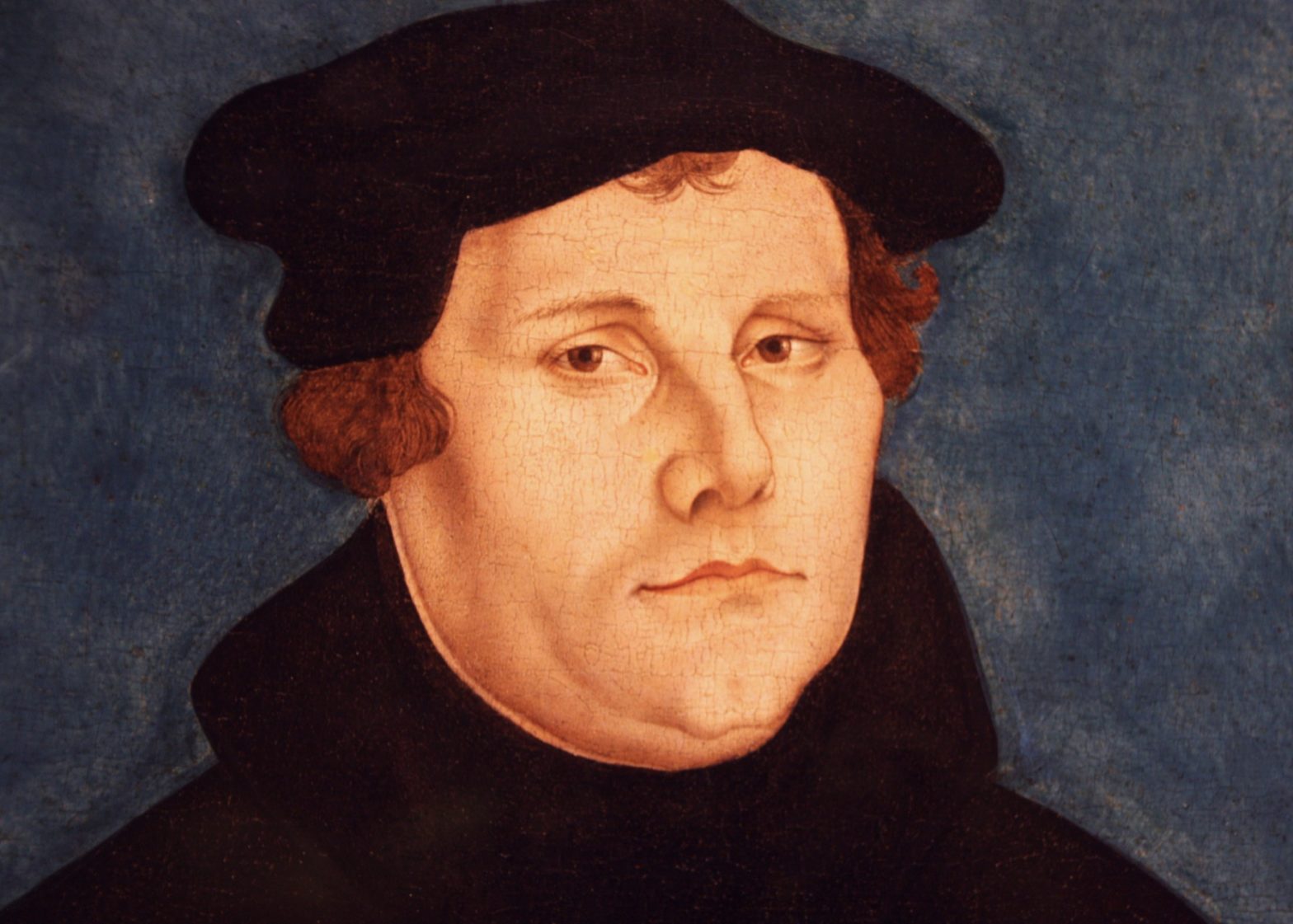Das heutige Bild ist anders – Du wirst sehen, warum! Heute hören wir die Geschichte eines anderen deutschen Reformators.
Today’s picture is different – you’ll see why! Here we hear the story of another German reformer.
Previously:
- Vorvort (Foreword): 1 2 3 4 5 6 7 8 9
- Inhaltverzeichnis (Table of contents) 10
- 1. Die Teure Gnade (1. Costly Grace) 11 12 13 14 15 16 17 18 19
Als Gott durch seine Knecht Martin Luther in der Reformation das Evangelium von der reinen, teuren Gnade wieder erweckte, führte er Luther durch das Kloster. Luther war Mönch. Er hatte alles verlassen und wollte Christus in vollkommenem Gehorsam nachfolgen. Er entsagte der Welt und ging an das christliche Werk. Er lernte den Gehorsam gegen Christus and seine Kirche, weil er wußte, daß nur der Gehorsame glauben kann.
When God through his servant Martin Luther during the Reformation awakened the gospel of pure, costly grace, he led Luther through the monastery. Luther was a monk. He had left everything and wanted to follow Christ in full obedience. He renounced the world and went into Christian work. He learned obedience to Christ and his church, because he thought [lit: knew] that only the obedient could believe.
[W: Here’s 10 things you should know about Martin Luther!]
Der Ruf ins Kloster kostete Luther den vollen Einsatz seines Lebens. Luther scheiterte mit seinem Weg an Gott selbst. Gott zeigte ihm durch die Schrift, daß die Nachfolge Jesu nicht verdienstliche Sonderleistung Einzelner, sondern göttliches Gebot an alle Christen ist.
The call to the monastery cost Luther the full commitment of his life. Luther failed with his path [due] to God himself. God showed him through Scripture, that the following of Jesus is not a meritorious special-achievement of individuals, but is a divine command for all Christians.
Das demütige Werk der Nachfolge war im Mönchtum zum verdienstlichen Tun der Heiligen geworden. Die Selbst-verleugnung des Nachfolgenden enthüllte sich hier als die letzte geistliche Selbstbehauptung der Frommen. Damit war die Welt mitten in das Mönchsleben hineingebrochen und in gefährlichster Weise wieder am Werk.
The humble work of discipleship had, in monasticism, become the meritorious deed[s] of the saints. The self-denial of discipleship revealed itself here as the ultimate spiritual self-assertion of the pious. With it, the world broke into the midst of the monastic-life, and — in the most dangerous way — again was at work.
Die Weltflucht des Mönches war als feinste Weltliebe durchschaut. In diesem Scheitern der letzten Möglichkeit eines frommen Lebens ergriff Luther die Gnade.
The “flight from the world” of the monk was looked upon [lit: seen through] as a finest “love of the world”. In this failure of the final possibility of a pious life, Luther grasped grace.
[W: Did Bonhoeffer mean at this point that “Luther grasped grace”, or that “grace seized Luther”? Tantalising.]
Er sah im Zu-sammenbruch der mönchischen Welt die rettende Hand Gottes in Christus ausgestreckt. Er ergriff sie im Glauben daran, daß, “[Es ist] doch unser Tun unsonst ist, auch in dem besten Leben”.
He saw — in the collapse of [his] monastic world — the saving hand of God in Christ, stretched out. He seized it by faith that “Our works, alas, are all in vain; in much the best life faileth”.
[W: Here Bonhoeffer is quoting the 2nd verse of Luther’s well-known hymn, “Aus tiefer Not schrei ich zu dir”, based on Psalm 130. So I’ve used the line from the English translation “From the Depths of Woe” – is still one of my favourite hymns!]
Es war eine teure Gnade, die sich ihm schenkte, sie zerbrach ihm seine ganze Existenz.
It was a costly grace, that gave itself (perhaps himself?) to him, which shattered his entire existence.



